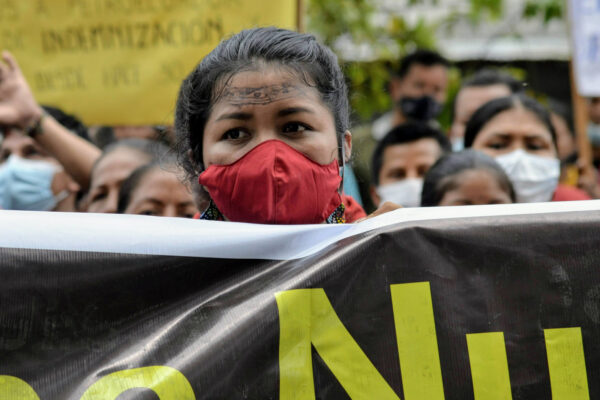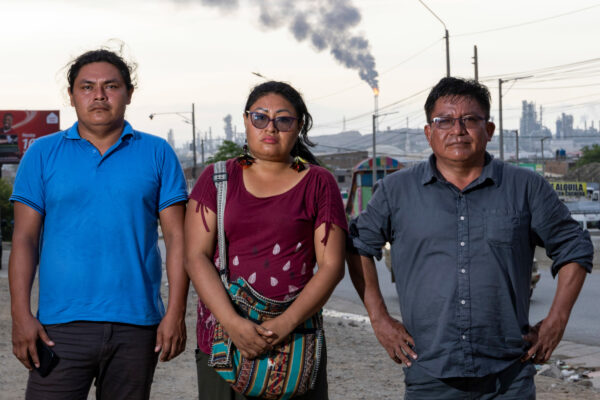Quito, Ecuador – Nine women environmentalists were violently assaulted when they attempted a peaceful protest at the offices of the Oleoducto de Crudos Presados (OCP) Consortium in Quito, Ecuador. The sit-in was in support of a general strike underway in the oil-producing region of Lago Agrio to protest the construction of the new heavy crude pipeline by the Consortium.
Company security guards destroyed cameras, assaulted the activists and three journalists while taking possession of their photographic equipment in an attempt to prevent coverage of the incident. One journalist, Gustavo Abad from El Universo, a leading national daily, was reportedly beaten and detained by OCP employees. International human rights and environmental organizations quickly denounced the actions of the Consortium with calls and emails urging the Ecuadorian and international media to expose this incident.
The demonstrators were from Acción Ecológica, an Ecuadorian grassroots NGO opposed to the construction of the OCP, and Oilwatch International, which is a Quito based network of communities in South America, Asia, and Africa affected by the oil industry.
“The OCP Consortium has clearly demonstrated how it intends to treat Ecuadorians who exercise their legitimate right to protest the impacts of the company’s operations,” said Alexandra Almedia, Acción Ecológica.
The $1.1 billion, 500-mile OCP pipeline would transport heavy crude from the Ecuadorian Amazon to a refinery in Esmeraldas on the Pacific Coast. With the OCP, Ecuador intends to double oil production from the Amazon region. The Ecuadorian Government, the World Bank and the IMF tout the project as the corner stone of the economic plan aimed at alleviating the country’s burgeoning external debt.
The consortium of international companies includes Alberta Energy, Repsol-YPF, Agip, Perez-Companc, Kerr-McGee and the Los Angeles based Occidental Petroleum, whose operations on the U’wa people’s land in Colombia have been the subject of widespread controversy. Germany’s largest public bank, WestLB is the lead financier behind the project, providing a $900 million syndicated loan to the Consortium.
The pipeline faces growing resistance from both Ecuadorian and international groups concerned over the project’s adverse impacts, such as soil and water contamination from spills and leaks, threats to intact rainforest ecosystems and indigenous lands, and the opening up of vast areas of the Amazon rainforest to oil exploration. Activists and citizen’s groups also cite ongoing environmental problems with the current pipeline in Ecuador as cause for concern about the OCP. In May, the country’s existing pipeline ruptured due to a landslide, spilling 7,000 barrels of oil. This accident was the 14th major oil spill since 1998. In the past year, at least five bombings of Ecuador’s oil pipelines have occurred, adding to the environmental risks of the OCP.













